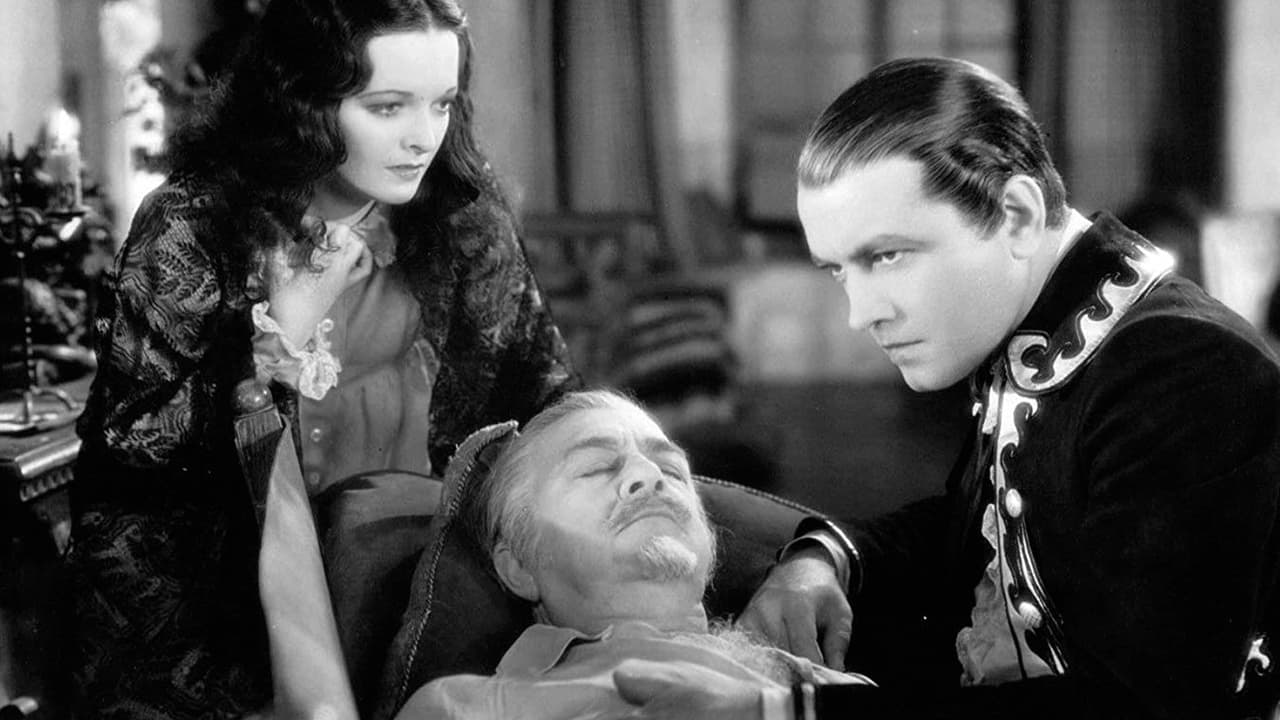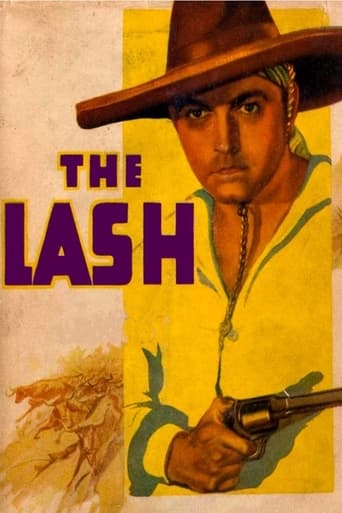GamerTab
That was an excellent one.
Lidia Draper
Great example of an old-fashioned, pure-at-heart escapist event movie that doesn't pretend to be anything that it's not and has boat loads of fun being its own ludicrous self.
Lachlan Coulson
This is a gorgeous movie made by a gorgeous spirit.
Staci Frederick
Blistering performances.
drjgardner
When you watch some films from the early talkie period you have to realize that film was in a transitional period. Of course, not all films from this period need that caveat: look at the wonderful films like "All Quiet on the Western Front", "Animal Crackers", "Disraeli", "The Big House", etc. Unfortunately, "The Lash" requires the caveat. It's OK considering the time when it was made.The film's star is Richard Barthlemess (1895-1963) who was a major silent film star but failed to make the transition due to his acting style, which is well illustrated here. Director Frank Lloyd (1886-1960) who was a major figure in the 30s, seems to be on holiday here. Llolyd was nominated for an Oscar 4 times and won for "The Divine Lady" (1929) and "Cavalcade" (1933). Among his notable films are "Mutiny on the Bounty" (1935), "Blood on the Sun" (1945), and my favorite Jim Bowie biography "The Last Command" (1955). But here his considerable skills are not on display.I think the problem was wider spread than this film. Westerns did poorly for many years, and only found their depth in the 40s and 50s.
wes-connors
Sometime after Mexico lost California to the US in 1846, Mexican student Richard Barthelmess (as Francisco "Pancho" Delfino) returns home to his Southern California estate. Although his side lost the war, Mr. Barthelmess is optimistic because the US is allowing Spaniards to keep their land. His attitude changes when Barthelmess discovers Americans gringos are trying to swindle his family out of their wealth. To level the playing field, Barthelmess becomes the bandit "El Puma!" The character is patterned after "Zorro!" and "Robin Hood". Barthelmess appears silly playing a young student from Mexico, especially when he utters Spanish expressions. "The Lash" is an early sound film – the silent film medium accommodated ethnic crossovers nicely (Barthelmess in "Broken Blossoms") and the stage could be even friendlier (Mary Martin as "Peter Pan"). Still, Barthelmess should have known better; his effortless accent shows he probably did...Others in the cast benefit by not being the lead...Barthelmess' love-interest is lightly-accented senorita Mary Astor (as Rosita Garcia). Side-kick Arthur Stone (as Juan) looks the part, at least. As the American sheriff, James Rennie (married to Dorothy Gish) best illustrates the unsteady silent-to-sound crossover; his hat and make-up make him look like an old silent screen serial villain, but he's playing a good guy. Little sister Marian Nixon (as Dolores) is the second female lead, but Barbara Bedford (as Lupe) gets the best feminine role. Veteran actors Fred Kohler, Robert Edeson and Erville Alderson are worth seeing. For the time, this was a fine supporting cast and top production. At the time, Barthelmess and director Frank Lloyd were "Academy Award" and audience favorites. Direction by Mr. Lloyd is skillful, traveling well around complicated sets. Unfortunately, editing and speeded-up visuals make the big action sequence, occurring after about 30 minutes of running time, look less than spectacular.**** The Lash (12/20/30) Frank Lloyd ~ Richard Barthelmess, Mary Astor, James Rennie, Marian Nixon
bkoganbing
Though Richard Barthelmess gives a good account of himself as Hispanic Californio post Mexican War, I wonder why someone like Gilbert Roland was not cast in the part. He would have been perfect in The Lash.The Lash has Richard Barthelmess returning home to his California ranch after service in the Mexican army during the war. All is not well at his place as some of the Americans are proving to be ruthless conquerors. One who especially fits that bill is Fred Kohler, a very greedy and crooked land commissioner.After a few indignities at the hands of the Americans, Barthelmess turns to outlawry and takes up the name of El Puma. Essentially he's Zorro without the mask. And he's won the heart with his dashing derring-do of Senorita Mary Astor.On the minus side he's causing a lot of conflict for his sister Marian Nixon and James Rennie who is the new American sheriff, but an honest one. Barthelmess was still a bit uneasy before the sound camera and it certainly would have been a better film had someone of Latino background been cast. But on balance The Lash is good entertainment.Though a pair of non-Latinos like Errol Flynn and Tyrone Power were waiting in the future for these kind of roles.
calvinnme
...although the setting is California after the Mexican American War. Barthelmess plays Don Francisco Delfina, a Spanish nobleman of old California who finds himself considered a peon by the conquering Americans in spite of his education and refined manners. When he is sent by his uncle to deliver 3000 head of cattle to American Peter Harkness in San Francisco, Don's attention to a senorita that Harkness considers his girl gets him tied to a post and whipped, something that is only stopped by the sheriff of the territory. "The lash" though physically not that harmful in this case, leaves an emotional scar of humiliation on proud Don Francisco. In retaliation he delivers the cattle to Harkness by setting them loose to stampede the town that received him so poorly and then becomes a bandit, robbing the gringos of their ill-gotten gains and giving to the poor Mexicans of California in return.The acting is transitional. Stars that were accustomed to the silents such as Mary Astor and Richard Barthelmess still talk in that halting speech pattern so typical of the silent stars in the process of transition. Lesser known stars, recruited from stage to screen, talk more naturally. Even though the sound mix is Vitaphone, which usually required a static indoor environment, there are quite a few outdoor scenes and all involve quite a bit of camera motion, so this is not your typical static over-talkie talkie.There is one humorous scene in which Don Francisco's sister is explaining the origin of the term "gringo" to her suitor, an American. She comes up with some story about a song American soldiers sang with the words "the green goes over the flag" or something similar. There have been other folk etymologies that have the origin being other American songs such as "Green Grow the Lilacs". However, since the term dates back to the eighteenth century, more than likely gringo just means someone who speaks unintelligibly - someone speaking Greek - which is how the Spanish saw those who spoke English.This is an early talkie worthy of your time if you are a fan of Richard Barthelmess or are interested in early sound films. It is one of the better early efforts at drama during the year 1930 by Warner Brothers, which was still a struggling up-and-coming studio at the time.

